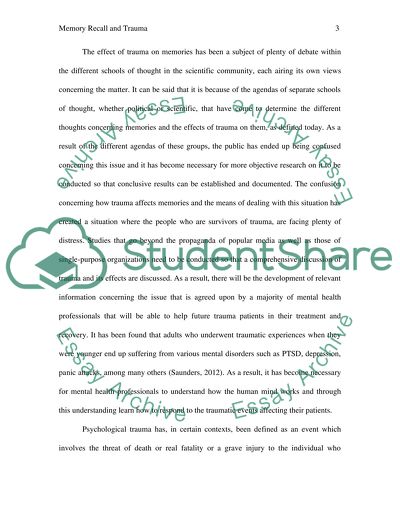Cite this document
(“Memory Recall and Trauma Research Paper Example | Topics and Well Written Essays - 1500 words”, n.d.)
Retrieved from https://studentshare.org/psychology/1495325-memory-recall-and-trauma
Retrieved from https://studentshare.org/psychology/1495325-memory-recall-and-trauma
(Memory Recall and Trauma Research Paper Example | Topics and Well Written Essays - 1500 Words)
https://studentshare.org/psychology/1495325-memory-recall-and-trauma.
https://studentshare.org/psychology/1495325-memory-recall-and-trauma.
“Memory Recall and Trauma Research Paper Example | Topics and Well Written Essays - 1500 Words”, n.d. https://studentshare.org/psychology/1495325-memory-recall-and-trauma.


